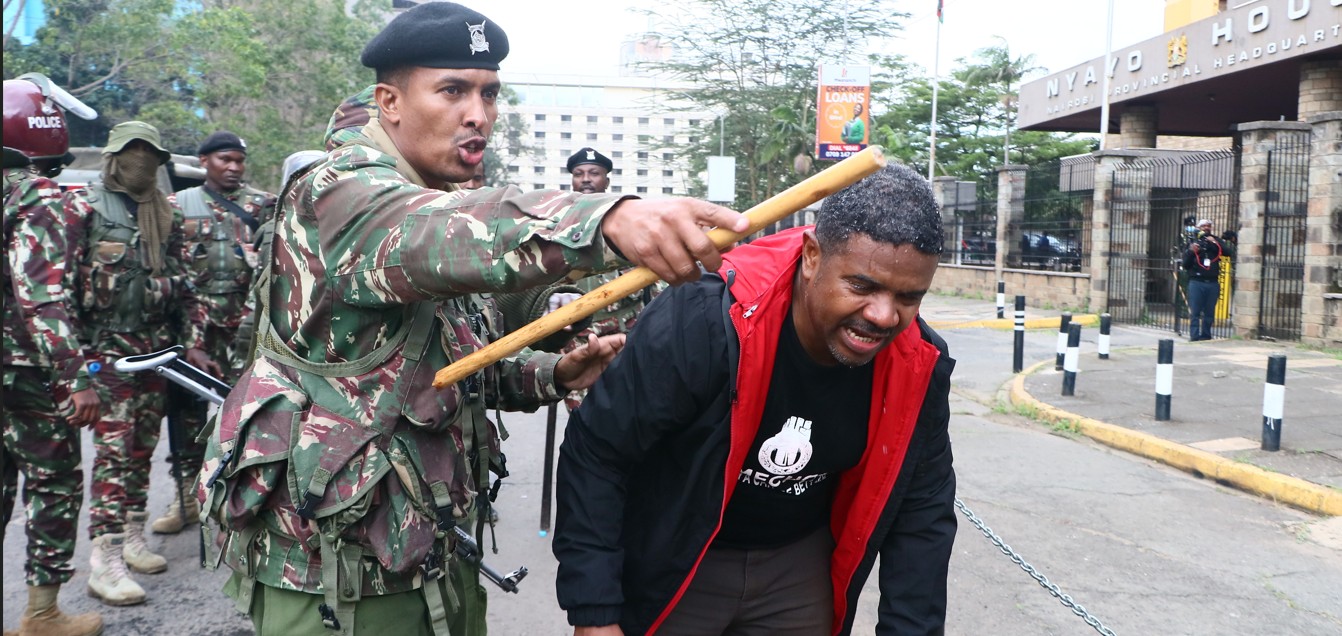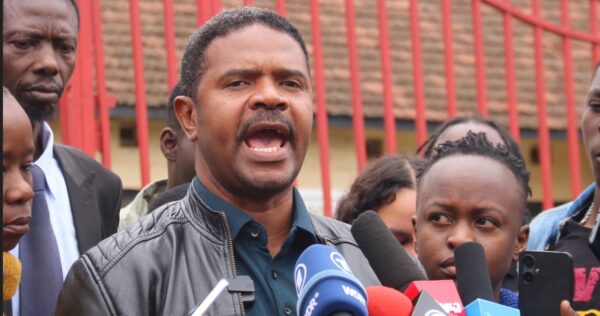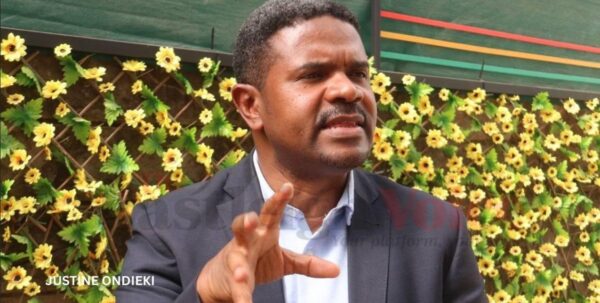Hussein Khalid: Police brutality, rights violations persist 15 years after 2010 Constitution

According to Hussein, the implementation of the Constitution promulgated in August 2010 has been fraught with challenges, as the state has consistently denied Kenyans the full enjoyment of rights guaranteed by the law.
When The Eastleigh Voice visited renowned human rights activist and now Executive Director of Vocal Africa, Hussein Khalid, he was poring over reports from his organisation’s field officers at the ongoing exhumation in Kwabinzaro, Kilifi County. Bodies, reminiscent of the Shakahola cult tragedy, were once again being unearthed.
Hussein was visibly disturbed. It troubled him that Kenyans continue to lose their lives in such circumstances, despite State assurances that the Shakahola deaths would be the last of their kind.
More To Read
- Coast activists issue two-week ultimatum over Mombasa-Malindi Highway delays
- Maraga says presidential bid driven by desire to put Kenya back on constitutional rails
- Kanja admits police could have done better in handling Gen Z protests, advocates for training
- Gen Z protests in Kenya: Key facts (2024-2025)
- Amnesty report shows at least 128 killed, 3,000 arrested in 2024–2025 Gen Z protests
- Court rules Dutch national Elwin Ter Horst unfit to stand trial
The Eastleigh Voice had sought to discuss with him the state of human rights 15 years after the adoption of the 2010 Constitution. Had freedoms improved under the new legal framework?
Fraught with challenges
Hussein began by noting that implementation has been fraught with challenges, as the state has consistently denied Kenyans the full enjoyment of rights guaranteed by the Constitution.
"We have a regime that has refused to allow Kenyans to enjoy their rights, and then on the other side, you have Kenyans who are now more aware of their rights and are demanding the full enjoyment of these rights. So you have a clash of forces," explained Hussein.
He spoke calmly about an increasingly informed citizenry — a generation curious, engaged, and determined to have their rights respected.
 Human rights activist Hussein Khalid speaks to journalists at a past press briefing. (Photo: Justine Ondieki)
Human rights activist Hussein Khalid speaks to journalists at a past press briefing. (Photo: Justine Ondieki)
"On one side, you are having a generation who are more informed and are more aware of their rights, and on the other side we have a regime that is not willing to allow people to exercise these rights led by security agencies and police service that are very brutal and are clamping hard on Kenyans who would want to exercise their rights," narrated Hussein.
Right to protest
For him, the right to protest stands out as one of the hardest to exercise, because authorities are uneasy with citizens expressing it.
"The framers of the Constitution were very deliberate in having Chapter 4 on the Bill of Rights as the biggest chapter in the Constitution. This is because we have had a history as a country where human rights have been flagrantly violated during the Jomo Kenyatta time and Moi days," he said.
In Hussein’s view, the Bill of Rights remains the least developed and least implemented chapter.
"Because if you look at where we were then, and where we are now, we've actually made steps backwards. The state of human rights in the country in the last 15 years has deteriorated drastically, such that we now have the bloodiest day in the history of protests in this country as Saba Saba 2025."
Kenyans suffering
According to him, this shows that rights continue to be violated daily, leaving Kenyans suffering instead of enjoying the constitutional protections envisioned in 2010.
Despite numerous reforms across various sectors, Khalid insists the police remain unreformed — still operating as an arm of executive oppression.
"The police today are a force that is brutal against its own people. The police today remains a service that is hell-bent on killing, torturing and disappearance of Kenyans with impunity. So we are faced with a very difficult situation because all the reforms that were so promising. And all the initiatives that were taken into consideration, unfortunately, have not yielded fruit because the police have refused to allow them to introduce new ideas and changes," he believes.
 Human rights activist Hussein Khalid speaks during the interview with The Eastleigh Voice. (Photo: Justine Ondieki)
Human rights activist Hussein Khalid speaks during the interview with The Eastleigh Voice. (Photo: Justine Ondieki)
He also weighed in on the ongoing standoff between the office of the Inspector General of Police and the National Police Service over payroll management, promotions, and salaries.
"If you look at the clash between the National Police Service and the Inspector General of Police, this is another clear indication of police refusing to handle responsibilities to a neutral body that should be able to apply what is required across the board. So they want to retain power and exclusive rights of disciplining the officers," he narrated.
"The Ethics and Anti-Corruption Commission has listed police year in, year out. Even internally, when you look at how promotions are awarded, when you look at how salary increments are awarded, then you would have to part with money if you're a police officer. It's all about who knows who in the system," he averred.
Police brutality victims
Hussein also spoke candidly about President William Ruto’s recent initiative to compensate victims of police brutality. The directive, announced on 8 August 2025, provides reparations for civilians and security personnel who suffered harm or lost their lives during protests and riots.
"We are pleased with the decision to develop a framework to have Kenyans who were killed in protests compensated. This is a step in the right direction that needs to be supported."
His organisation, he said, has long demanded reparations for victims of state-sanctioned brutality during protests in 2024 and 2025.
"We have been urging this administration that the best way to show goodwill towards those who lost their lives and sustained injuries during state-sanctioned police brutality is through compensation," Khalid said.
President Ruto’s directive requires such compensation to be channelled through legally recognised mechanisms. As he concluded, Khalid issued a reminder to Kenyans: remain vigilant and protect the Constitution.
Top Stories Today















































